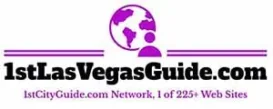Forensic Accounting: Finding Financial Fraud - Las Vegas Edition
2024.7.20
Forensic account is to discover and disclose financial fraud. It synthesizes accounting, auditing and investigating ability to discern finance crime. Furthermore, by virtue of running thorough checks on the relevant financial accountants, forensic accounting is of vital importance since volumes of complicated money circulation today. Consequently, people often rely on illegal income to earn money.
What is Forensic Accounting?
Forensic accounting refers to the use of accounting skills to discover whether or not a financial crime, such as embezzlement, has been committed. In simpler words, these accountants or professionals known as fraud examiners study the financial records to look for something odd, and collect evidence for approaching the court by checking various other sources. They are experts in accounting standards, law of the country and procedures to investigate.
Getting Ready
What Forensic Accountants Do?
The jobs forensic accountants do vary, depending on who they are working with: for a government agency; for the police; for real and imaginary companies; and for accountancy firms. As an example: Forensic accountants uncover illegal accounting in company books, such as the music company EMI’s failure to pay tax on international music sales, and fraudulent bank invoices for fake loans, which faked business success for many years. Forensic accountants can prevent, discover and expose frauds, and then provide expert testimony at trials.
- Investigating Financial Crimes: They examine financial records looking for evidence of fraud, money laundering, tax cheating and other criminal activity. They investigate suspicious transfers, track money trails, and look for unusual patterns.
- Report and testify in legal cases: They help with court cases involving money and write long reports recaping their findings, and explain their opinions in court and even testify as an expert witness.
- Stopping fraud: Forensic accountants work with an organization to put preventative measures into place, and identify weakness in existing preventative measures. The forensic accounting company will run checks to make sure proper internal controls are in place, and will recommend ways to reduce the risk.
Tools and Techniques
Forensic accountants have many measures to identify financial fraud, such as:
- Internal controls mechanism: The customer should bear the costs of a chargeback. Only the manager who authored the transaction can add goods to the inventory.
- Scrubbing software: This automated software compares the company’s purchase data with the account statement to look for mistakes and fraud.
- Data analysis: he will exploit financial data, mining for patterns and irregularities, using sophisticated software.
- Document Review: They check documents such as A/R reports, credit card receipts, invoices, contracts, cheque images, and other money tracking details, as well as auditing accounting documents to guarantee the amount of money listed in entries in the books match the other records of the money and the transactions are real and have all the documents to support them.
- Investigation: Forensic accountants interview potential witnesses, employees and managers in the finance department of the company / organization, and the persons who had business dealings with them. They use different techniques to bring out the truth and get at the heart of the issue.
- Computer Forensics: Forensic accountants may be engaged by computer experts in finding and checking electronic documentation such as emails, digital records and other electronic communications.
Famous Cases and Impact
Some of the world’s most infamous financial frauds would never have been discovered without the help of forensic accounting. Here are just a few of these unforgettable cases.
The Enron Scandal was a high-profile example of the sorts of complex transactions which forensic accounting can reveal: the US energy-trading company hid debt within the firm and used other transactions to fake profits, which eventually led to its spectacular collapse and the conviction for fraud and corruption of its leaders.
Bernie Madoff Ponzi Scheme: Bernie Madoff was convicted of running a Ponzi scheme persuading investors to provide billions of dollars of phantom profits. Forensic accountants’ careful examination of the financial records pointed to the fraud and allowed some of the money to be recovered from the victims.
SEND: WorldCom fraudulently boosted its assets and profits. Those accounting lies were apparent to forensic accountants, who caused its bankruptcy and led to the criminal prosecution of its leadership.
These three cases show the degree to which forensic accounting is able to detect financial fraud and bring those responsible to justice, but more importantly the need for robust financial controls and open financial reporting.
The Future of Forensic Accounting
With change in technicalities of financial transactions taking place and changing technology, we can expect to witness the growth as well as the evolution of forensic accounting.
- Artificial Intelligence (AI) and Machine Learning: Technologies relating to AI and machine learning are revolutionizing forensic accounting by enabling an extremely fast analysis of large datasets. These technologies can detect repetitive patterns and anomalies not obvious to the human eye, making investigations more accurate and efficient.
- Blockchain technology and cryptocurrencies will provide new challenges and opportunities for forensic accountants. While it may become more difficult to track financial transactions, blockchain technology will enable forensic accountants to trace digital assets.
- Cybersecurity: More crimes committed online mean more investigations into online financial crimes for forensic accountants. Forensic accountants should be aware of the latest threats to cybersecurity and how it can be stopped.
- Globalization: Businesses operate on a global scale, so forensic accountants must work through different rules and transactions in other countries. Therefore they must understand different legal systems and cultural differences.
- Education and Certification: The demand for specialists with forensic accounting skills is also leading to more education and certification programmes for these specialized investigators. Professional organizations such as the Association of Certified Fraud Examiners (ACFE) certify many of today’s forensic accountants, and it’s common for freelance fraud investigators to have this credential.
Challenges and Ethical Considerations
Forensic accounting has its challenges and ethical issues. Some key points include:
- Maintain Your Objectivity: Forensic accountants are expected to be neutral and objective in the performance of their duties. This can prove to be difficult, sometimes impossible, to accomplish, particularly when hired by a client who stands to benefit from the outcome of the examination.
- Dealing with sensitive information: Forensic accountants work with sensitive and private information, and must be made aware of the ethical rules to protect this information and build trust with the clients.
- Complex legal interpretations are common in financial fraud. For this reason, forensic accountants must be up to knowledge about relevant laws so they can make sure the findings are suitable to be used as evidence, and in court and generally.
- The need for immediate availability and sometimes short deadlines given to forensic accountants to uncover fraud and report their findings, coupled with the workload creates a tension in attempting to balance the desire for a quick and credible report, while maintaining the discipline of a thorough and accurate analysis.
- Changing with new threats: Financial fraud is constantly changing and evolving (for example different types of schemes and techniques emerge in financial fraud), it is important for forensic accountants to be alert to these new activities and constantly update their educational skills and knowledge.
1stLasVegasGuide.com

We List Only the Best
1st Las Vegas Guide is not a list of every business. Our website highlights only the best businesses / places / events are featured within these pages. This makes Las Vegas even more magical for residents and visitors alike.

Advertise Your Company
You can be seen by a high quality audience when you place an advertisement on 1st Las Vegas Guide. Not all companies are accepted… Call 702-210-4201 to be have your company seen by affluent buyers. You will be amazed how with the low price.

1st City Guide Expansion
1stCityGuide.com is the parent company of 225+ city guides worldwide. We are expanding and looking for Licensee partners to work together and provide a quality income when sharing the secrets of great cities around the world with visitors and residents alike. Call 702-210-4201 to discuss pricing and city guide availabilities.

